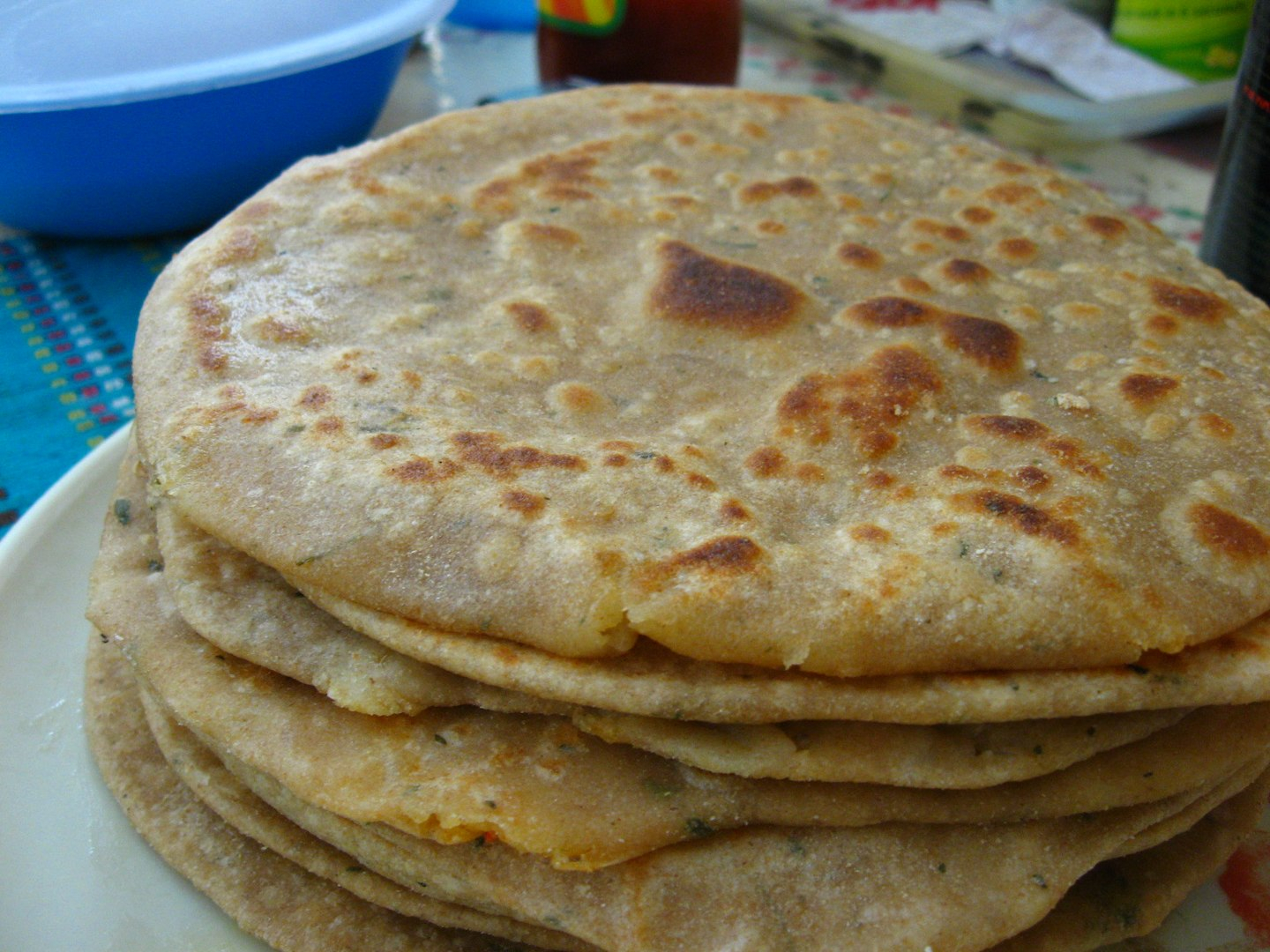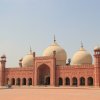
Paratha
Paratha (pronounced [pəˈɾɑːtʰɑː]) is a flatbread native to the Indian subcontinent, with earliest reference mentioned in early medieval Sanskrit text from Karnataka, India; prevalent throughout the modern-day nations of India, Sri Lanka, Pakistan, Nepal, Bangladesh, Maldives, Afghanistan, Myanmar, Malaysia, Singapore, Thailand, Mauritius, Fiji, Guyana, Suriname, and Trinidad and Tobago where wheat is the traditional staple. It is one of the most popular flatbreads in the Indian subcontinent and the Middle East. Paratha is an amalgamation of the words parat and atta, which literally means layers of cooked dough. Alternative spellings and names include parantha, parauntha, prontha, parontay, paronthi (Punjabi), porota (in Bengali), paratha (in Odia,Urdu, Hindi), palata (pronounced [pəlàtà]; in Myanmar), porotha (in Assamese), forota (in Sylheti), farata (in Mauritius and the Maldives), prata (in Southeast Asia), paratha, buss-up shut, oil roti (in the Anglophone Caribbean) and roti canai in Malaysia and Indonesia.

